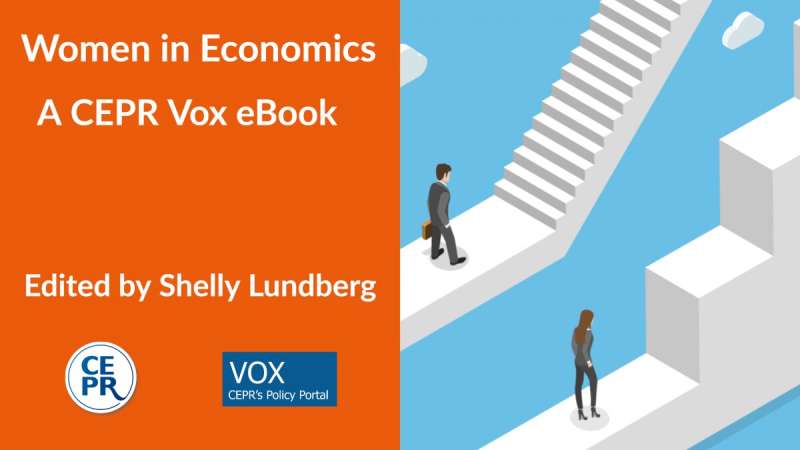Women's advancement in most science disciplines has risen during this century, but that has not proven true for the field of economics.
Donna Ginther, the Dean's Professor of Economics at the University of Kansas, has taken on that career challenge in hopes of helping her fellow female economists.
Her chapter "Mentoring matters for women in economics" appears in the new book "Women in Economics" (CEPR Press). It details a program created by the American Economic Association in 2004 to implement the national CeMENT mentoring workshop that provides participants with senior female role models and peers in this field. Then it follows the career outcomes of those participants over the next decade.
"What the mentoring program was designed to do was to give them all the unwritten rules about being a successful academic," Ginther said of the annual event. "This two-day workshop provides intensive discussions on how to research, get grants, publish, get tenure, how to network and how to balance work life."
But after the workshop concludes, Ginther studied both the participants and those who applied but didn't get in during the 2004 to 2014 span. Her research indicates this mentoring opportunity increased the probability of these 368 professionals of landing a tenure-stream job by 14.5% and finding one in a top-100 institution by 57.1%.
"The fact that two days transformed their careers is pretty interesting," she said.
Ginther said she is always looking for ways to study why women are less successful in the labor market.
"If we want to improve outcomes for women, we need to use data and approaches that facilitate their success," said Ginther, who co-wrote the chapter with Janet Currie, Francine Blau and Rachel T. A. Croson. (An expanded version of this research will be published in May.)
"You can spot bias, but how do you overcome it? If you tell people not to be biased, like we did for years, they just hold on to those behaviors anyway. These things are only going to change if women take the place they deserve in society."
Studies confirm women are underrepresented in math-intensive fields. Other research shows girls confront bias against whether they are good at math as early as kindergarten.
"It originates in the home and in school. If girls encounter a biased teacher, they're less likely to take advanced mathematics courses in high school, and that shuts them out from being an economist," Ginther said.
"We have a kind of choked-off pipeline to begin with at the college level. Economics is a social science, and it's about how people make decisions, but the way it's taught is really dry and abstract. That doesn't really speak to societal concerns that might appeal to women. They aren't tooled up to get the degree in the first place, and it's taught in a way that's not very exciting."
Statistically, fewer women are going into economics, with the number having stagnated since 2000. Currently, only 30 percent of doctorates are awarded to females. Ginther's research corroborates these academics are less likely to get tenure track jobs, and then once in those jobs, they're less likely to be tenured.
The Wisconsin native embraced this topic while she was an assistant professor navigating ways in which to earn tenure.
She said, "It was a bit of navel gazing trying to understand how the promotion process worked and if it differed across disciplines. And it did."
Ginther became a mentor for the CeMENT workshop in 2004 and headed it in 2008 and 2010. She says the ability to mentor female professors is mutually rewarding, whether through future collaborations or pure altruism.
"If you know how the world works and you can give advice, I think it's important to help people," she said.
"This is a hard career. As an academic, you're pulled in 20 different directions. You're always told no. You send a paper out and you're told no. You send a grant out and you're told no. Nobody tells you, 'Way to go!' So it's essential to have someone who can provide positive perspective."
An expert in labor economics, Ginther has spent 17 years at KU.
This month she was also appointed permanent director of the Institute for Policy & Social Research. One of the interdisciplinary centers on campus, the institute has an $8 million funded research portfolio for faculty and students to do funded work in the social and behavioral sciences.
"If I could wave a wand and get rid of gender stereotypes, I would, but I can't," Ginther said. "So what's the second best way? You give people tools to be successful. And that's why I'm such a fan of this approach because it offers people a way to be in control of their destiny."
More information: New book: Women in Economics: cepr.org/content/new-book-women-economics
Provided by University of Kansas



















